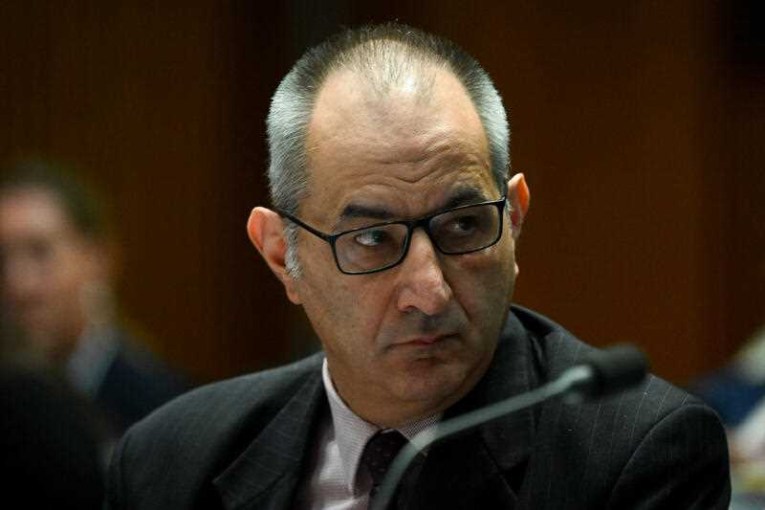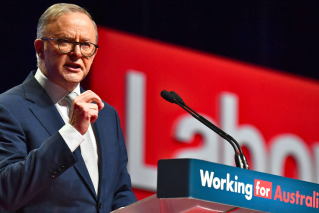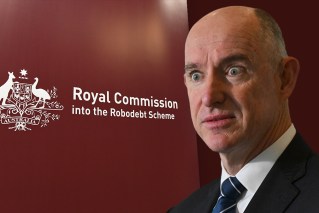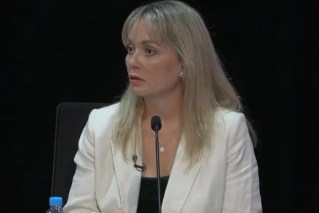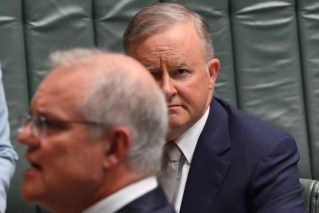Labor pledges downwards inflation pressure
A Labor government would put downward pressure on inflation by increasing productivity as opposed to major spending offsets, Opposition Leader Anthony Albanese says.
Labor has pledged to uphold – or surpass – many of the government’s spending commitments including freezing the deeming rate, cheaper medicines, stage three tax cuts and one-off payments and tax offsets.
When pushed on whether Labor’s commitments would be offset beyond its plan to raise $2 billion in taxes on multinational companies, with more spending fuelling more inflation, Mr Albanese said spending would be targeted to increase productivity.
“That’s how you put downward pressure on inflation,” he told the ABC’s Q+A program on Thursday.
“You need to be cautious in your spending. If you look at where our expenditure is … (it’s) measured, (it’s) aimed at boosting, lifting productivity.”
Return to gain-sharing wages model
Mr Albanese ruled out any changes to the already legislated stage three tax cuts as well as any tax reviews or changes beyond making multinationals pay a fairer share.
The Labor leader earlier in the day set out his plan to return the country to a gain-sharing wages model.
The group incentive model that seeks to boost productivity through a pay-for-performance system will work in synergy with a growing economy, Mr Albanese told the Australian Chamber of Commerce and Industry.
“The economic reforms I am taking to this election will grow the national income and lift productivity,” he said in Sydney.
“We must return wages to the gain-sharing model. When a growing economy underpinned a first-world wages model. When the larger national income pie grew for the benefit of both workers and business.”
Universal childcare will boost economic output
Universal childcare will boost Australia’s economic output and female participation by supporting mothers, Mr Albanese said.
“We need to fix the persistent, structural barriers that prevent so many women securing decent jobs and careers, and financial security over the course of their lives,” he said.
“This is where our childcare policy will play such a crucial role.”
He denied he was taking a small target agenda to the election after scrapping most of Labor’s big-ticket policies from the 2019 election.
Mr Albanese used the pandemic to justify a pivot to largely centering policy offerings around economic productivity and onshore manufacturing capabilities to protect against supply chain shortages.
Pandemic showed weaknesses in economy
“The pandemic showed us … the weaknesses in the economy. People … don’t want everything upended but they want to see change and reform come,” he said.
“We have cheaper childcare, we have greater women’s participation in the workforce, we have a national reconstruction fund that’s creating those new industries.
“That’s an ambitious agenda. But it’s one that’s practical, one that’s achievable, and I’ve been very cautious to not promise things that can’t be achieved.”
Mr Albanese also hit back after accusations he’s not across his briefs after failing to list the six key points of his NDIS policy when repeatedly questioned by journalists on Thursday morning.
Advisor passed on briefing notes
An advisor was forced to hand the Labor leader his briefing notes midway through a news conference before he read out the list of six points.
He later rejected he didn’t know his party’s platform and accused journalists of “gotcha game-playing”.
“I wasn’t given the opportunity. What I did today was to say the essential point. All of those points come down to one key fact, which is putting people back at the centre of the NDIS,” he said.
Mr Albanese also failed to directly point towards fiscal cuts to the NDIS when asked about Labor’s attacks against the government, saying they could be found in the budget document.
“If you look at the underspend that was there in the budget, in the budget last time and the time before, those underspends were there,” he said.
“The government produced savings there.”
But statements from the most recent budget chart a consistent rise in NDIS funding from 2015-16, and a projected increase each year to 2032-33.
-AAP
